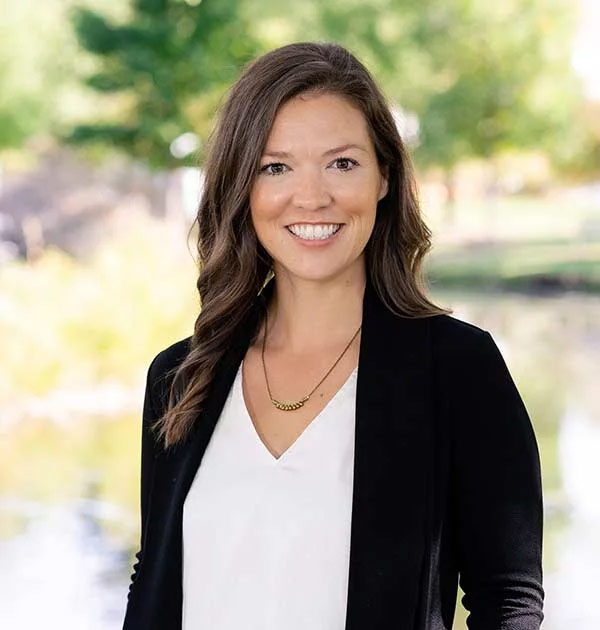Honoring Suicide Prevention Month and Recovery Month with Compassion, Action, and Community

We all have a story to tell, and while our journey is uniquely our own, there are threads connecting us as humans, even in the moments when we feel most alone. You are not alone. Most of us have experienced the pain, confusion, and feelings of helplessness related to suicide and addiction. Whether it is a personal battle or watching someone we love face these challenges, these experiences deeply affect the individual struggling and creates ripples for those around them. We also know there is a profound hope in the stories of recovery. This September, we bring forward the stories, supporting those around us with compassion and a determination to let each person know, we are here for you.

Suicide and addiction touch more lives than we often realize, with many individuals and families holding secret the pain they carry day to day. Particularly when faced alone, it can leave behind a deep sense of loss, uncertainty, and shame. But when we come together, when we bring these struggles out of the shadows, we can find so much compassion, determination, and resilience.
This mission is incredibly personal for me. I lost my grandmother to suicide when I was just a child. She was trying to escape the weight of depression, addiction, and the pain she carried. Years later, I lost my brother to an overdose, a loss that I carry with me every day. These losses taught me early on just how much pain people can carry, and how sometimes that pain becomes too much to bear. Every August, the month in which both of them died, my mother and I reflect on how we carry these losses in our bones, as part of the essence of who we are and how we make meaning in our own stories. All of this fuels my commitment to this cause.
Recently, we faced another tragedy when we lost two members of our Jefferson Center family to suicide within days of each other. We struggled with unanswered questions, trying to make sense out of what feels unimaginable, and processing the layers of grief and ripples of impact to so many loved ones, people on our team, and communities we serve. Our mission places mental health and wellbeing at the forefront of every day, and while these losses shook us to our core, we have a deepened commitment to the work we do every day. I know firsthand how crucial it is to have the right support in place when someone is struggling, and these experiences remind me why our mission matters so much.
At Jefferson Center, we’ve embraced the Zero Suicide approach—a commitment to making suicide prevention a core responsibility across our entire organization. This means that every interaction with someone we serve is an opportunity to assess, intervene, and offer support. We train our staff to recognize warning signs, use evidence-based practices, and maintain a compassionate connection with those in our care. Zero Suicide creates a culture of safety and a commitment that we’ll do everything we can to prevent the loss of another life.
Prevention: Building a Foundation of Support
Preventing suicide starts long before a crisis occurs. It’s about creating a culture where people feel valued and supported, where reaching out for help is seen as a strength, not a weakness. Much of our work in prevention focuses on education and outreach, breaking down the stigma surrounding mental health and substance use and encouraging open, honest conversations. Whether it’s through taking Mental Health First Aid, QPR or simply checking in on a friend, prevention is something we all can and must take part in.
Intervention: Responding with Care and Urgency
When someone is in crisis, immediate support and intervention can make all the difference. Colorado Crisis Services provides a 24/7 hotline and warmline simply by calling 988. For anyone who wonders if their crisis is big enough, or important enough, I encourage you to call. You get to decide when you need to talk, no judgement. Jefferson Center is also part of the statewide crisis network and offers a walk-in crisis center at 4643 Wadsworth Blvd, mobile response teams, and more, ensuring that when someone reaches out, they get the help they need right away.
Postvention: Supporting Healing and Recovery
The period of healing following a suicide, or a suicide attempt can feel lonely and can be a period of high risk for a suicide attempt. The goal of postvention is to help those affected by the loss to cope with their grief, reducing the risk of further suicides through counseling, support groups, and resources for those navigating their grief. My own experience with loss reminds me daily of how crucial this support is. No one should have to face this pain alone.
The Power of Community
None of our work would be possible without the strength of our community. It’s in the connections we build with each other that we find resilience. Just last week, Jefferson Center led the Suicide Prevention Coalition Summit to plan for our coordinated suicide prevention work in the coming year. More than 20 people from organizations across Jefferson, Clear Creek, and Gilpin counties spent the day sharing ideas, identifying key areas of work, and learning about the impact being made by this incredible group. We know connection is key to preventing suicide, and we are honored to participate in a group of dedicated organizations and individuals to connecting with our communities with shared resources, ideas, and support.
As we honor Suicide Prevention Month and Recovery Month, I urge each of you to consider how you can be part of this critical work. Whether you’re offering a listening ear, volunteering your time, taking a class, or spreading awareness, you are contributing to a safer, more supportive environment for everyone. Together, we can create a community where no one feels alone, where hope and recovery are always within reach.

Kiara Kuenzler
President and CEO – Jefferson Center
- Kiara’s Note – Blog
- Mental Health Matters – Blog
- Voices of Hope – Blog
- Humans of Jefferson Center
- Addiction & Substance Use
- Anxiety
- Child Mental Health
- Crisis and Trauma
- Depression
- Exercise
- Just The Facts
- LGBTQIA+ & Pride
- Medicaid
- Men’s Mental Health
- Parenting
- Recovery
- Senior and Older Adult
- Socializing
- Stigma
- Stress
- Suicide Prevention
- Support & Advocacy
- Teen’s Mental Health
- Treatment Options
- Women’s Mental Health